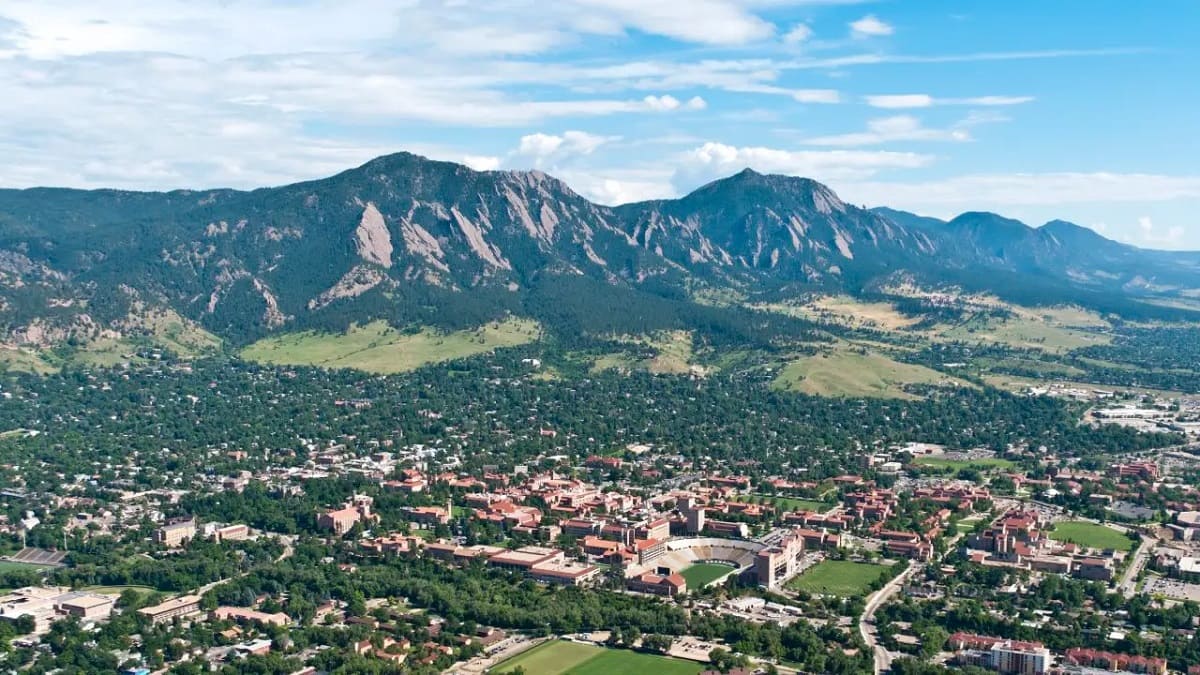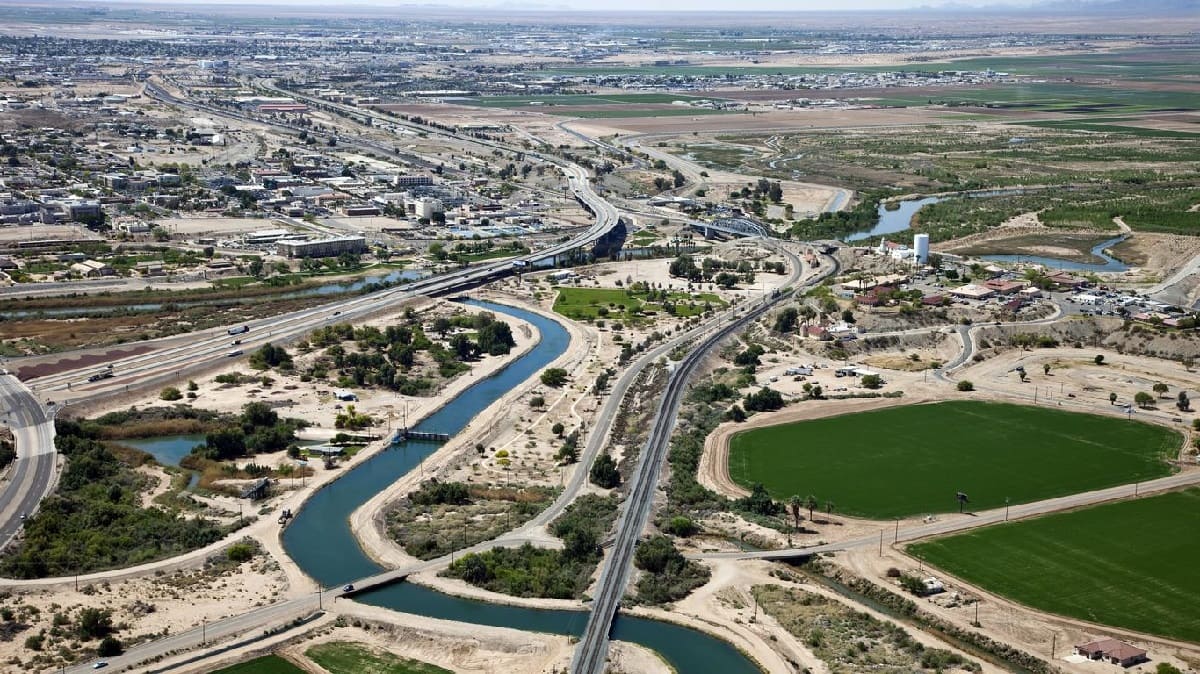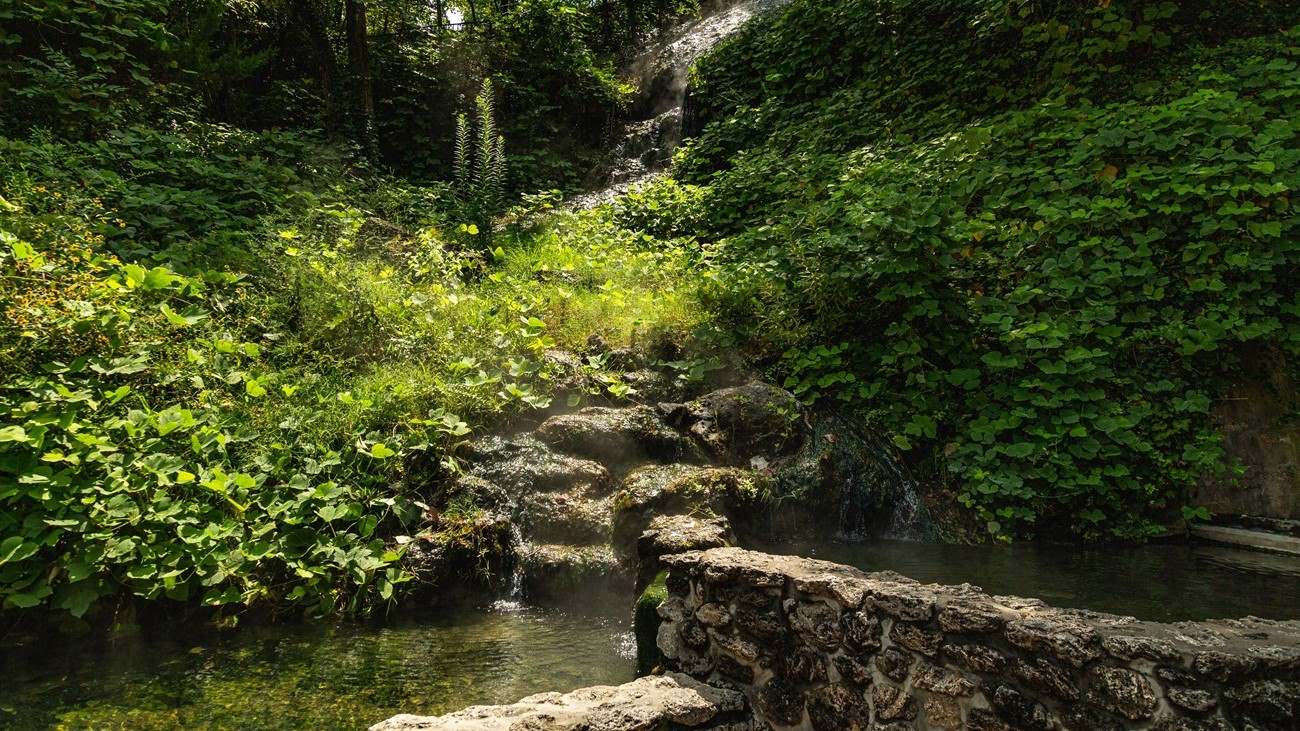Home>Weather and Climate>Nashville Weather: A Comprehensive Guide To Year-Round Climate


Weather and Climate
Nashville Weather: A Comprehensive Guide To Year-Round Climate
Published: March 7, 2024
Discover the diverse weather and climate of Nashville with our comprehensive guide, providing insights into the year-round conditions and seasonal variations. Gain valuable knowledge to plan your activities and prepare for any weather changes.
(Many of the links in this article redirect to a specific reviewed product. Your purchase of these products through affiliate links helps to generate commission for Temperatures.com, at no extra cost. Learn more)
Table of Contents
Introduction
Nashville, the vibrant capital of Tennessee, is renowned for its rich musical heritage, bustling entertainment scene, and diverse cultural offerings. However, beyond its lively atmosphere and thriving arts community, Nashville is also characterized by its unique and varied climate. Understanding the weather patterns and seasonal changes in Nashville is essential for residents and visitors alike, as it directly impacts daily activities, outdoor events, and overall lifestyle.
In this comprehensive guide, we will delve into the year-round climate of Nashville, providing valuable insights into the distinct weather patterns that shape each season. From the blossoming beauty of spring to the crisp chill of winter, Nashville's climate offers a dynamic tapestry of meteorological experiences. Additionally, we will explore how to prepare for the diverse weather conditions and navigate through potential extreme weather events that can occasionally impact the region.
By gaining a deeper understanding of Nashville's climate, you will be equipped to make informed decisions about outdoor plans, travel arrangements, and seasonal activities. Whether you're a local resident or a curious traveler, this guide will serve as a valuable resource for unraveling the captivating nuances of Nashville's weather. So, let's embark on a meteorological journey through the heart of Music City, where the climate is as diverse and captivating as the city itself.
Understanding Nashville's Climate
Nashville's climate is characterized by its distinct seasonal variations, offering a diverse range of weather patterns throughout the year. Situated in the southeastern region of the United States, Nashville experiences a humid subtropical climate, influenced by its proximity to the Appalachian Mountains and the Gulf of Mexico. This unique geographical positioning contributes to the city's ever-changing weather conditions, creating a fascinating tapestry of meteorological experiences.
During the spring months, Nashville awakens from the winter chill with blossoming flowers, lush greenery, and comfortably mild temperatures. Springtime in Nashville is a delightful period, marked by the gradual transition from cool to warm weather. As the city comes to life with vibrant colors and renewed energy, residents and visitors can enjoy pleasant outdoor activities, such as picnics in the park and leisurely strolls along the scenic riverfront.
Summer in Nashville brings long, hot days and balmy evenings, as the city basks in the warmth of the sun. With high humidity levels and occasional thunderstorms, the summer season offers an ideal setting for outdoor concerts, festivals, and recreational pursuits. While the heat can be intense, it also creates a lively atmosphere, with locals and tourists alike embracing the summer spirit through outdoor dining, live music performances, and community events.
As autumn arrives, Nashville undergoes a breathtaking transformation, as the foliage adorns the landscape with a kaleidoscope of red, orange, and gold hues. The fall season brings cooler temperatures and a sense of anticipation for the upcoming holidays. Residents savor the crisp air and embrace the opportunity to engage in outdoor activities, such as apple picking, hiking in nearby parks, and attending harvest festivals that celebrate the bounty of the season.
Winter in Nashville is characterized by chilly temperatures and occasional snowfall, creating a picturesque winter wonderland. While the city experiences milder winters compared to northern regions, the occasional snow dusting adds a touch of enchantment to the urban landscape. Residents and visitors can partake in seasonal festivities, such as holiday markets, ice skating, and cozy gatherings around crackling fireplaces.
In summary, Nashville's climate offers a captivating blend of seasonal changes, each contributing to the city's unique charm and appeal. By understanding the distinct weather patterns that shape Nashville throughout the year, individuals can fully embrace the diverse experiences that each season brings, from the vibrant blooms of spring to the festive cheer of winter.
Spring Weather in Nashville
Spring in Nashville heralds the much-anticipated transition from the subdued tones of winter to the vibrant resurgence of nature. As the city emerges from the cool embrace of winter, Nashville experiences a delightful awakening, characterized by blooming flowers, verdant landscapes, and comfortably mild temperatures. The spring season typically spans from March to May, offering a rejuvenating interlude before the onset of the balmy summer months.
During the early weeks of spring, Nashville experiences a gradual rise in temperatures, with daytime highs ranging from the pleasant mid-60s to the comfortable mid-70s Fahrenheit. The city's parks and gardens come alive with a kaleidoscope of colors as cherry blossoms, daffodils, and tulips adorn the surroundings, creating a picturesque backdrop for outdoor activities and leisurely strolls. The gentle warmth of the sun, coupled with the fragrant blooms, infuses the air with a sense of renewal, inspiring residents and visitors to embrace the outdoors and revel in the natural splendor that envelops the city.
As spring progresses, Nashville encounters occasional rainfall, contributing to the lush greenery and sustaining the burgeoning flora. The refreshing showers, often accompanied by the distant rumble of thunder, add a dramatic touch to the seasonal transition, nurturing the earth and enhancing the overall ambiance. Despite the sporadic rain, the majority of spring days in Nashville are characterized by clear skies and ample sunshine, creating an inviting environment for outdoor picnics, al fresco dining, and recreational pursuits along the scenic riverfront.
The mild and pleasant weather of spring in Nashville sets the stage for a myriad of outdoor activities and cultural events. From vibrant music festivals and art fairs to community gatherings and farmers' markets, the city comes alive with a sense of vitality and creativity. Residents and visitors alike embrace the opportunity to engage in outdoor concerts, open-air performances, and leisurely bike rides, reveling in the enchanting atmosphere that permeates the city during this time of year.
In essence, spring in Nashville offers a harmonious blend of natural beauty and cultural vibrancy, inviting individuals to immerse themselves in the captivating allure of the season. The gentle warmth, blossoming flora, and a sense of renewal create an idyllic backdrop for embracing the outdoors and savoring the myriad experiences that springtime in Nashville has to offer.
Summer Weather in Nashville
Summer in Nashville unfolds as a vibrant tapestry of long, sun-drenched days and balmy evenings, characterized by the city's embrace of warmth and energy. Spanning from June to August, the summer season in Nashville brings forth a lively atmosphere, where residents and visitors alike revel in the abundance of outdoor activities, cultural events, and the infectious spirit of the city.
During the peak of summer, Nashville experiences high temperatures, with daytime highs often reaching the mid-80s to low 90s Fahrenheit. The sultry warmth is accompanied by moderate to high humidity levels, creating a palpable sensation of summer in the air. Despite the heat, the city's parks, green spaces, and riverfront areas become bustling hubs of activity, as individuals seek refuge under the shade of sprawling trees or indulge in refreshing water-based recreational pursuits.
The summer months in Nashville also bring occasional thunderstorms, adding a dramatic flair to the weather patterns. These brief yet intense storms punctuate the summer landscape, offering a respite from the heat and infusing the air with a sense of anticipation. The rolling thunder and electrifying displays of lightning contribute to the dynamic nature of Nashville's summer weather, creating an awe-inspiring backdrop for outdoor concerts, festivals, and evening gatherings.
Amidst the warmth and occasional storms, Nashville's summer season sets the stage for a myriad of cultural and recreational experiences. The city's renowned music scene comes alive with outdoor concerts, live performances, and music festivals that celebrate the diversity of musical genres. From country and rock to blues and jazz, the summer air resonates with the melodic rhythms and soul-stirring tunes that define Nashville's musical identity.
Furthermore, the city's culinary landscape flourishes during the summer months, with open-air dining venues, food truck festivals, and farmers' markets offering an array of delectable treats. Locals and visitors embrace the opportunity to savor seasonal delights, indulge in al fresco dining experiences, and partake in community gatherings that showcase the vibrant culinary culture of Nashville.
In essence, summer in Nashville is a time of exuberance, creativity, and communal celebration, where the city's dynamic energy converges with the warmth of the season. The long, sunlit days and the pulsating rhythm of outdoor events create an inviting ambiance, inviting individuals to immerse themselves in the effervescent spirit of summer in Music City.
Fall Weather in Nashville
As summer gracefully transitions into fall, Nashville undergoes a breathtaking metamorphosis, adorned with a rich tapestry of crimson, gold, and amber hues. The fall season, spanning from September to November, bestows upon the city a sense of enchantment, as the landscape transforms into a captivating display of autumnal splendor.
During the early weeks of fall, Nashville experiences a gradual shift in temperatures, with daytime highs ranging from the comfortable mid-70s to the mild mid-60s Fahrenheit. The crispness in the air heralds the arrival of sweater weather, inviting residents and visitors to embrace the cozy allure of the season. The city's parks and green spaces become adorned with the vibrant foliage, creating a picturesque setting for outdoor activities, leisurely walks, and moments of contemplation amidst the natural beauty that envelops the surroundings.
As fall progresses, Nashville encounters a gradual cooling trend, with daytime temperatures settling into the refreshing mid-60s to low 70s Fahrenheit range. The city's skyline becomes a canvas of warm, earthy tones, as the leaves transition from verdant greens to a kaleidoscope of autumnal colors. The gentle rustle of fallen leaves and the aroma of pumpkin spice infuse the air, evoking a sense of nostalgia and warmth that permeates the city.
The fall season in Nashville also brings clear, sunny days, offering an ideal backdrop for outdoor excursions, such as apple picking, hiking in nearby parks, and leisurely bike rides along the scenic trails. The city's cultural landscape flourishes with harvest festivals, art fairs, and community gatherings that celebrate the abundance of the season. Residents and visitors alike embrace the opportunity to partake in seasonal delights, such as indulging in pumpkin-flavored treats, sipping on spiced beverages, and reveling in the festive ambiance that defines fall in Nashville.
In essence, fall in Nashville is a time of transition, reflection, and natural splendor, where the city's vibrant energy converges with the captivating beauty of the season. The crisp air, the resplendent foliage, and the sense of anticipation create an idyllic backdrop for embracing the outdoors and savoring the myriad experiences that fall has to offer in Music City.
Winter Weather in Nashville
Winter in Nashville unfolds as a picturesque tableau of seasonal enchantment, where the city's landscape is adorned with a delicate dusting of snow, and the air carries a palpable sense of wintry nostalgia. Spanning from December to February, the winter season in Nashville offers a captivating blend of chilly temperatures, occasional snowfall, and a festive ambiance that permeates the urban landscape.
During the heart of winter, Nashville experiences cool temperatures, with daytime highs typically ranging from the mid-40s to the low 50s Fahrenheit. The city's parks and riverfront areas exude a serene charm, as the occasional snowflakes delicately blanket the surroundings, creating a postcard-worthy winter wonderland. While Nashville experiences milder winters compared to northern regions, the intermittent snowfall adds a touch of enchantment to the urban scenery, inviting residents and visitors to embrace the seasonal beauty that unfolds before them.
The occasional snowfall in Nashville contributes to the city's festive atmosphere, evoking a sense of wonder and delight. The sight of snow-kissed rooftops and frosted landscapes infuses the air with a whimsical allure, inspiring individuals to partake in seasonal activities such as ice skating, holiday markets, and cozy gatherings around crackling fireplaces. The city's cultural scene flourishes with winter-themed events, including holiday concerts, theatrical performances, and art exhibitions that celebrate the spirit of the season.
Furthermore, Nashville's culinary landscape comes alive with seasonal delights, as cozy cafes and eateries offer an array of comforting treats, from steaming cups of hot cocoa to delectable winter soups and stews. The city's vibrant music scene resonates with the melodic strains of holiday tunes and festive melodies, creating a harmonious backdrop for seasonal celebrations and communal gatherings.
In essence, winter in Nashville is a time of tranquility, enchantment, and communal warmth, where the city's dynamic energy converges with the captivating beauty of the season. The gentle snowfall, the festive ambiance, and the sense of togetherness create an idyllic backdrop for embracing the seasonal charm and savoring the myriad experiences that winter has to offer in Music City.
Extreme Weather Events in Nashville
Nashville, like many regions across the United States, is susceptible to a range of extreme weather events that can impact the city and its residents. From severe thunderstorms and tornadoes to occasional winter storms, Nashville's climate presents a diverse array of meteorological phenomena that demand vigilance and preparedness.
During the spring and summer months, Nashville experiences the heightened possibility of severe thunderstorms, characterized by intense lightning, strong winds, and heavy rainfall. These storms can lead to localized flooding, power outages, and temporary disruptions to outdoor activities. Additionally, the region is situated within "Tornado Alley," a geographic area known for its increased tornado activity. Tornadoes pose a significant threat to the area, requiring residents to stay informed about weather alerts and have a designated safety plan in place.
In the winter, Nashville may encounter occasional winter storms, bringing snow, sleet, and freezing rain. While the city experiences milder winters compared to northern regions, these winter weather events can impact travel conditions and necessitate precautions to ensure safety and preparedness.
Furthermore, Nashville is not immune to extreme heat events during the peak of summer, with high temperatures and humidity levels posing potential health risks. It is essential for residents and visitors to stay hydrated, seek shade, and take necessary precautions to prevent heat-related illnesses during periods of intense heat.
In recent years, Nashville has also faced the impact of flash flooding, particularly in low-lying areas and regions prone to drainage issues. These sudden and intense floods can disrupt transportation, damage property, and pose risks to public safety.
Given the diverse range of extreme weather events that Nashville may encounter, it is crucial for individuals to stay informed about weather forecasts, heed official warnings from local authorities, and have a comprehensive emergency plan in place. This includes identifying shelter locations, assembling emergency supply kits, and staying connected with reliable sources of information during weather-related emergencies.
By understanding the potential for extreme weather events and taking proactive measures to prepare and respond, residents and visitors can navigate through challenging weather conditions with resilience and ensure the safety and well-being of the community.
In summary, Nashville's susceptibility to a variety of extreme weather events underscores the importance of proactive preparedness and vigilance. By staying informed, having a comprehensive emergency plan, and fostering a sense of community resilience, individuals can mitigate the impact of extreme weather events and navigate through challenging conditions with steadfastness and unity.
How to Prepare for Nashville Weather
Preparing for Nashville's diverse weather patterns involves a combination of proactive measures, awareness, and adaptability to ensure safety and comfort throughout the year. Whether it's the potential for severe thunderstorms in spring and summer, the occasional winter storms, or the need to stay vigilant during extreme heat events, being prepared is essential for residents and visitors alike.
-
Stay Informed: Keeping abreast of weather forecasts and alerts is crucial in preparing for Nashville's weather. Utilize reliable weather apps, local news channels, and official sources to stay informed about potential weather hazards and advisories.
-
Emergency Plan: Develop a comprehensive emergency plan that includes designated shelter locations, evacuation routes, and communication strategies. Ensure that all household members are familiar with the plan and practice emergency drills regularly.
-
Emergency Supply Kit: Assemble an emergency supply kit that includes essential items such as non-perishable food, water, first-aid supplies, flashlights, batteries, and a portable weather radio. Additionally, include any necessary medications and important documents in a waterproof container.
-
Severe Weather Preparedness: During the spring and summer, be prepared for severe thunderstorms and tornadoes by identifying safe shelter areas in your home or workplace. Stay tuned to weather updates and be ready to take immediate action in response to severe weather warnings.
-
Winter Weather Readiness: In anticipation of winter storms, ensure that your home is equipped with adequate heating sources, insulation, and emergency supplies such as blankets, warm clothing, and non-perishable food items. Additionally, have a plan for safe travel and be mindful of road conditions during winter weather events.
-
Heat Safety: During periods of extreme heat, prioritize hydration, seek shade, and limit outdoor activities during the hottest parts of the day. Be mindful of heat-related illnesses and take necessary precautions to stay cool and well-hydrated.
-
Flood Awareness: Stay informed about flood risks in your area and be prepared to take action in the event of flash flooding. Avoid driving through flooded areas and heed evacuation orders from local authorities.
By proactively preparing for Nashville's weather, individuals can navigate through the diverse climate with resilience and confidence. Through awareness, planning, and readiness, residents and visitors can mitigate the impact of weather-related challenges and ensure the safety and well-being of the community.
Conclusion
In conclusion, Nashville's climate offers a captivating journey through the ever-changing tapestry of seasonal transitions, each imbued with its own unique charm and allure. From the blossoming beauty of spring to the vibrant energy of summer, the enchanting hues of fall, and the tranquil enchantment of winter, Nashville's weather paints a vivid portrait of diversity and resilience.
As residents and visitors traverse through the city's meteorological landscape, they are greeted with a symphony of natural wonders, cultural celebrations, and communal resilience. The gentle warmth of spring beckons individuals to embrace the outdoors, while the vibrant pulse of summer infuses the city with energy and creativity. The crisp air of fall invites contemplation amidst the resplendent foliage, and the wintry nostalgia of winter fosters a sense of togetherness and warmth.
Moreover, Nashville's susceptibility to a range of extreme weather events underscores the importance of proactive preparedness, vigilance, and community resilience. By staying informed, having a comprehensive emergency plan, and fostering a sense of unity, individuals can navigate through challenging weather conditions with steadfastness and ensure the safety and well-being of the community.
As the seasons ebb and flow, Nashville's climate serves as a testament to the city's enduring spirit, adaptability, and capacity for renewal. It is a reminder of the inherent connection between nature and human experience, where each season unfolds as a chapter in the city's collective narrative.
Ultimately, Nashville's climate is not merely a backdrop to daily life; it is an integral part of the city's identity, shaping experiences, fostering resilience, and uniting individuals in the shared tapestry of meteorological diversity. By embracing the nuances of Nashville's weather, residents and visitors alike gain a deeper appreciation for the city's dynamic spirit and the enduring beauty that unfolds with each passing season.














